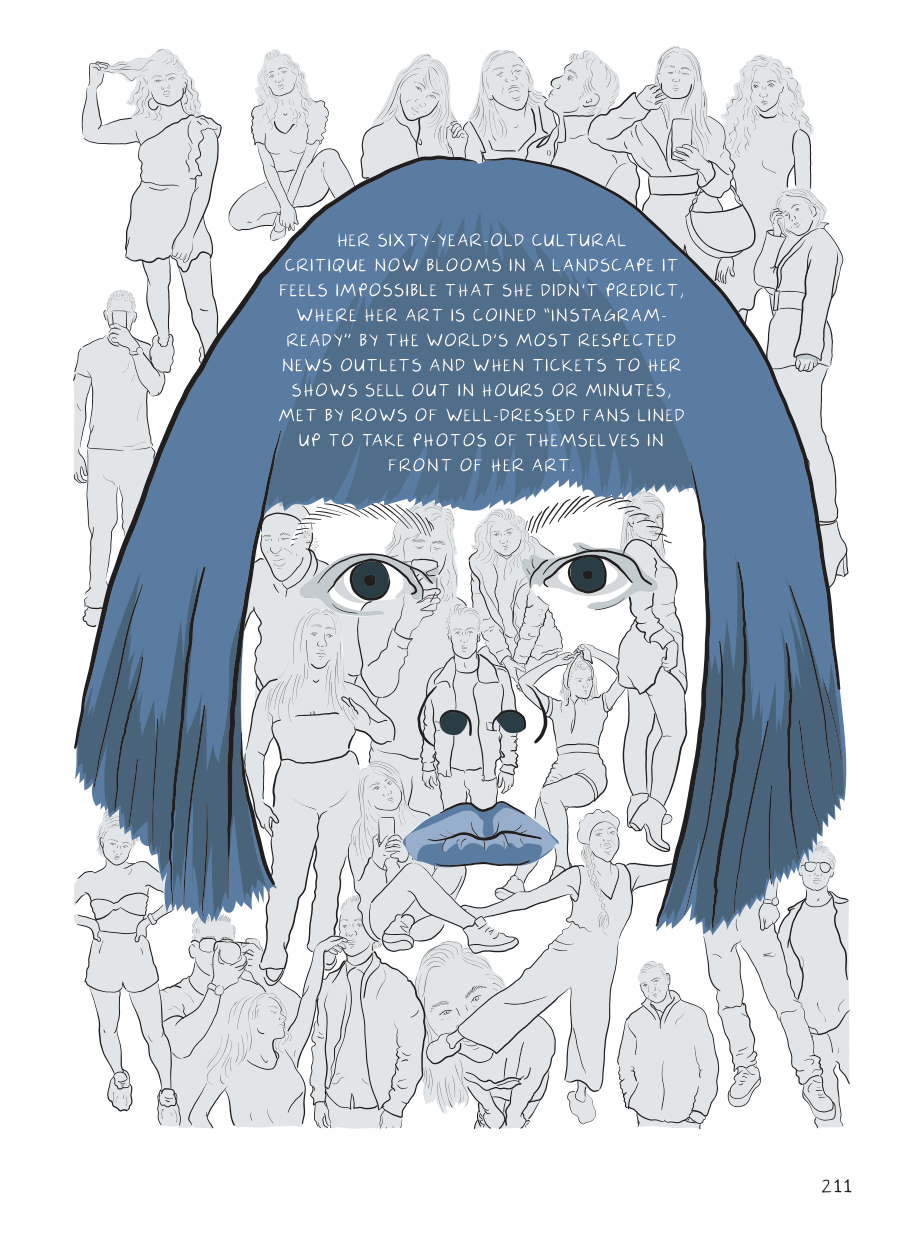

In her new graphic nonfiction book Seek You: A Journey Through American Loneliness, Kristen Radtke recounts an unusual experience with Yayoi Kusama’s work: she sees it alone. Even after a pandemic year devoid of blockbuster exhibits, it’s hard to conjure the image of a Kusama show without a stanchioned mass of visitors along its periphery. But Radtke happens to see it at the Bellagio casino in Las Vegas, where even an “Infinity Mirror Room” can be lost in the sea of spectacle. The writer and artist, who is also art director and deputy publisher of The Believer magazine, arrives with what she describes as a “silent sense of superiority,” as she recognizes the disconnect between Kusama’s vision of self-obliteration and the public’s obsession with using her art as backdrops for selfies. Yet, when she enters an “Infinity Mirror Room,” Radtke immediately photographs herself — a moment captured in the book as a stunning, page-spanning drawing of Radtke surrounded by flecks of gold against a dark blue backdrop.
As ubiquitous as the author’s reaction to Kusama’s work is, the 200 pages of Seek You that led to this moment provoked me to turn it over in my mind anew; I realized my own embarrassment at taking selfies stems from the way they feel like evidence of experiences I have alone but yearn to share with someone. This is among the book’s greatest strengths: to attune its readers to the nuances of loneliness. Radtke interrogates this pervasive but often shame-filled aspect of the human condition through stories that move between wide-ranging decades and contexts, including her own experiences living in Wisconsin, Las Vegas, and New York, and pop cultural representations such as the idealized American cowboy and the successes of Donald Draper, the solitary advertising executive in AMC’s Mad Men.

In the opening pages, Radtke notes how she began conceptualizing the book prior to the pandemic, when loneliness had already been “increasing exponentially for decades.” Although the globe-spanning isolation measures of the last year may have normalized it for a time, Radtke writes, “Loneliness is often exacerbated by a perception that one is lonely while everyone else is connected.” Seek You seems poised to become increasingly resonant as some begin resuming pre-pandemic social schedules at full speed while others remain cautious and, in turn, more alone.
The question of perception’s role within our experiences of loneliness was one I found myself returning to often as I read Seek You. Radtke organizes her musings thematically within sections that are separated by monochromatic palettes and titles such as “Watch,” “Click,” and “Listen.” Loneliness, she suggests, truly surrounds us. In the most visually arresting drawings, we see wordless, full-page images of one person overwhelmed by their environments, often tinted in cool blues or greens.
But, there were times that I longed for the text to linger with Radtke’s narrative, to more intimately dissect her own obsession with loneliness. Her self-portraits also felt drawn at a slight remove; on a few occasions, I compared them to photographs on the internet, to confirm the drawing was of her. In the end, I still appreciated the space Seek You’s fragmented structure leaves for readers to fill with their own self-interrogations. I felt rewarded when I returned to the image of Radtke within the Kusama installation and noticed her use of a rare warm yellow, which radiates across her figure. I took this to imply that connecting with another human through her art offers not so much a solution to feeling lonely but a kind of solace in which we can both lose and find ourselves.

Seek You: A Journey Through American Loneliness (Pantheon, 2021) by Kristen Radtke is available on Bookshop.
0 Commentaires